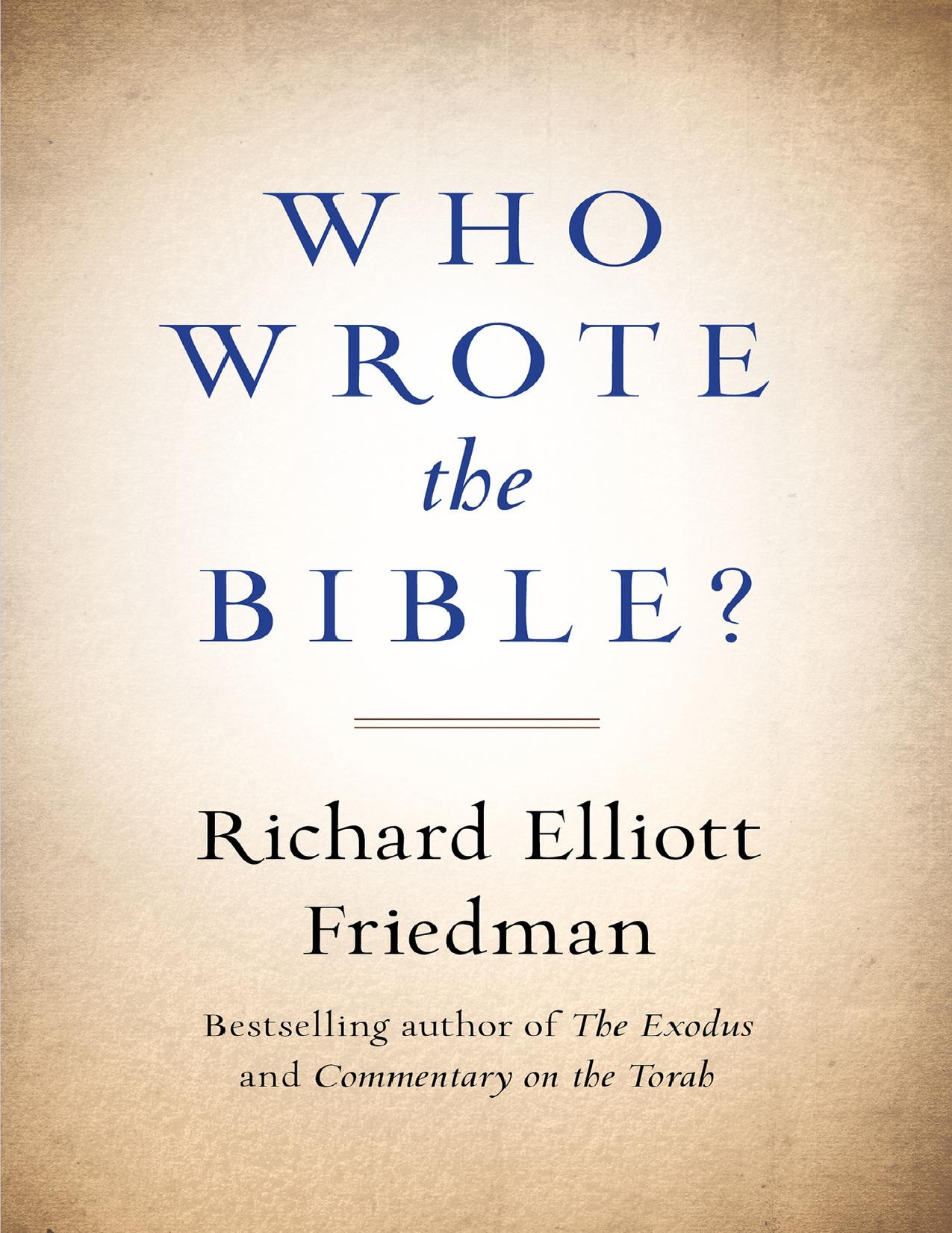Who Wrote the Bible? by Richard Elliott Friedman

Author:Richard Elliott Friedman [Friedman, Richard Elliott]
Language: eng
Format: mobi, pdf
Published: 2013-08-10T16:00:00+00:00
The Covenant
Modern investigators were confused over these insertions about the Davidic covenant. Sometimes the insertions reiterated this promise that the Davidic kings would rule forever, even if they sinned; but sometimes they seemed to be saying just the opposite, that the kings could rule only if they did not sin.
For example, the covenant promise in 2 Samuel 7 says explicitly that even if the king does wrong he keeps the throne:
I shall chastise him with the rod of people and the lashes of humans if he does wrong, but my fidelity will not turn from himâ¦. Your house and kingdom will be secure before you forever. Your throne will be established forever.
But the covenant promise in 1 Kings 8:25 says that the kingâs tenure on the throne does depend on his behavior:
There will not be cut off from you a man before me sitting on the throne of Israel only if your sons keep their way, to go before me as you went before me.
How could the Deuteronomist insert lines that blatantly contradicted each other? Was the covenant conditional or unconditional?
If we examine all of the passages that mention the Davidic covenant, we will find that all of the conditional passages spoke of the kingsâ holding the throne of Israel. All of the unconditional passages spoke of the kingsâ holding the throne. This petty difference of wording was not so petty to the writer. He had to deal with the historical fact that Davidâs family started out ruling the whole united kingdom of Israel, but that they had lost all of it except their own tribe of Judah. He therefore pictured the covenant promise to David to be partly conditional and partly unconditional. The throne of Judah in Jerusalem was unconditional. It was to belong to Davidâs descendants forever. But the throne of all Israel was to belong to them only if they were worthy. Which they were not. And so they lost it.
The Deuteronomistic writer added a slight, enigmatic twist on this point. When he pictured the prophet Ahijah of Shiloh taking the throne of Israel away from the Davidides and giving it to Jeroboam, he wrote that Ahijah says to Jeroboam:
I shall give Israel to you. And I shall humble Davidâs seed on account of this, but not for all time.32
Ahijah seems to be saying that the Davidic kingsâ loss of Israel will not last forever. And in fact King Josiah attempted to take back the northern territory of Israel. Again the events of the biblical world had an impact on the way a biblical author told the story. In this case, the political fortunes of the country affected the writerâs formulation of the covenant between God and his anointed king, his messiahâwhich became one of the central elements of Judaism and Christianity. The man who assembled the Deuteronomistic history, like those who write J, E, and the Deuteronomic law code, was inextricably tied to the issues of the world around him, its moments of joy and its catastrophes.
Download
Who Wrote the Bible? by Richard Elliott Friedman.pdf
This site does not store any files on its server. We only index and link to content provided by other sites. Please contact the content providers to delete copyright contents if any and email us, we'll remove relevant links or contents immediately.
Hebrews, James by George H. Guthrie & George H. Guthrie(450)
Israel: Ancient Kingdom or Late Invention? by Daniel I. Block(439)
Ideology by Eagleton Terry;(437)
The 9.9 Percent by Matthew Stewart(416)
The New Oxford Annotated Bible with Apocrypha by unknow(407)
Take Back Your Time by Christy Wright(406)
Eating the Bible by Rena Rossner(403)
Insights on Hebrews by Charles R. Swindoll(397)
The Book Every Leader Needs to Read by 48 Authors(394)
Psalms, Proverbs, Ecclesiastes, and Song of Songs by John W. Hilber & Tremper Longman III & Duane Garrett(369)
Commentary on the Torah by Richard Elliott Friedman(344)
Commentary on James (Commentary on the New Testament Book #16) by Robert H. Gundry(341)
Judges: Volume Two by unknow(336)
The Jew in the Lotus by Rodger Kamenetz(335)
Who Wrote the Bible? by Richard Elliott Friedman(333)
NKJV, Ignite, eBook by Thomas Nelson(330)
Job, Ecclesiastes, Song of Songs by August H. Konkel & Tremper Longman III(327)
Proverbs, Ecclesiastes, Song of Solomon (Ancient Christian Commentary on Scripture) by J. Robert Wright(322)
Reading the Bible with Rabbi Jesus by Tverberg Lois(306)
